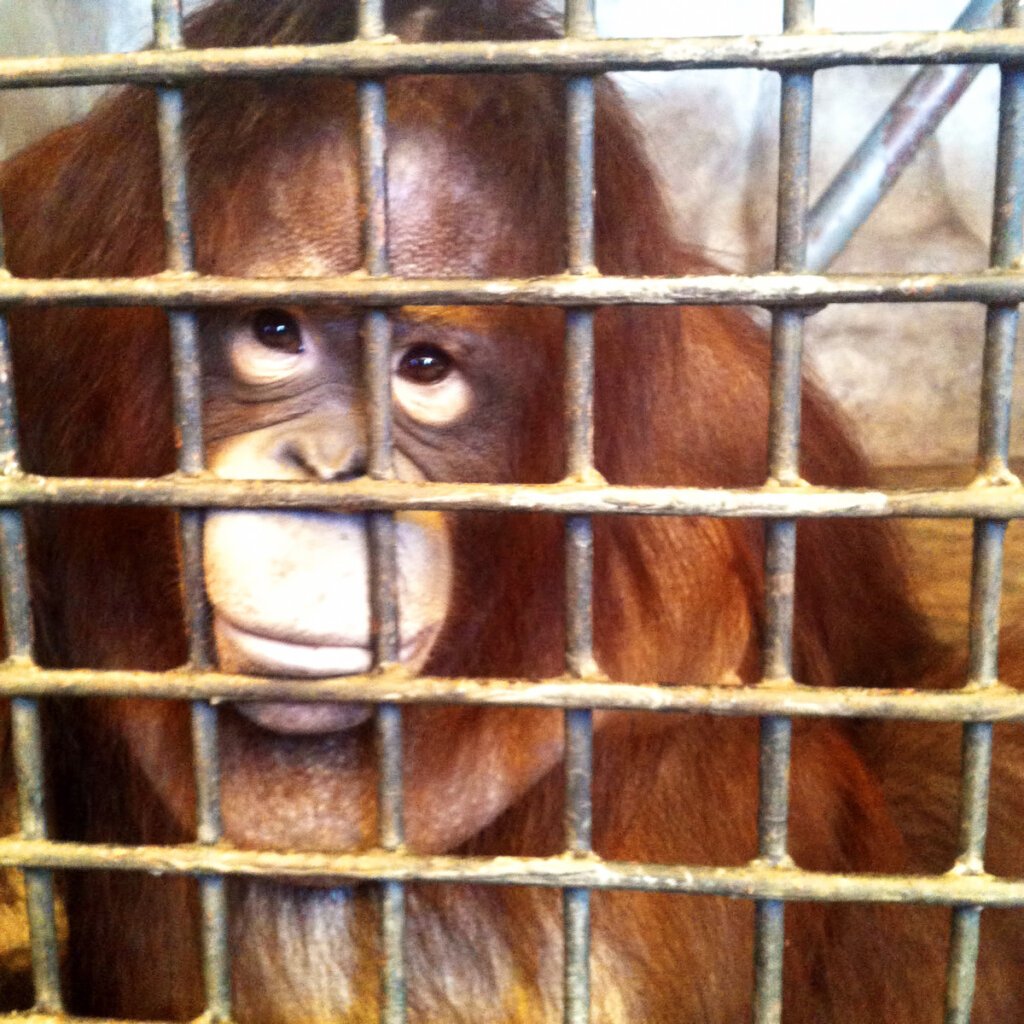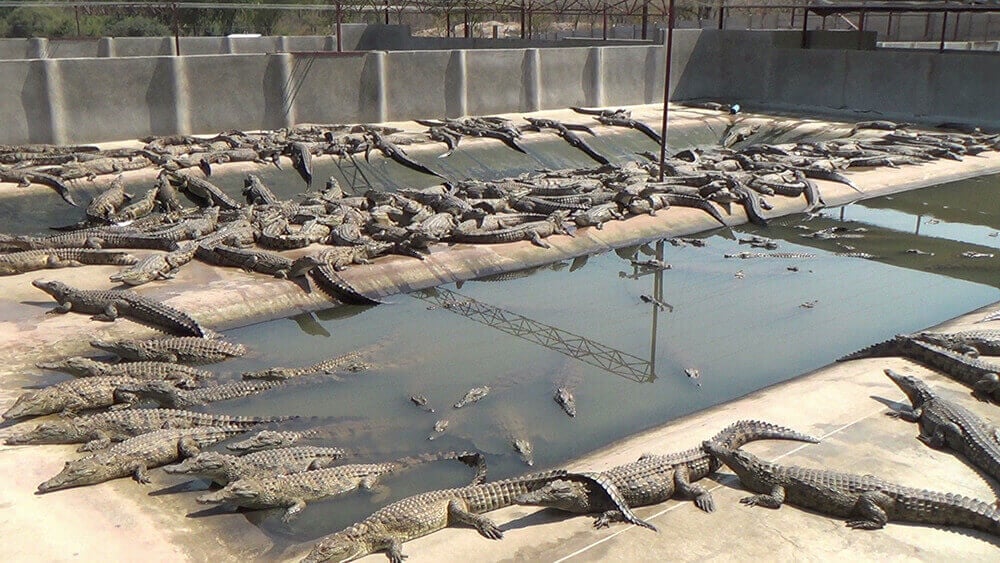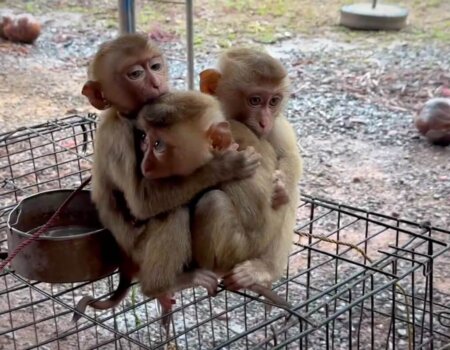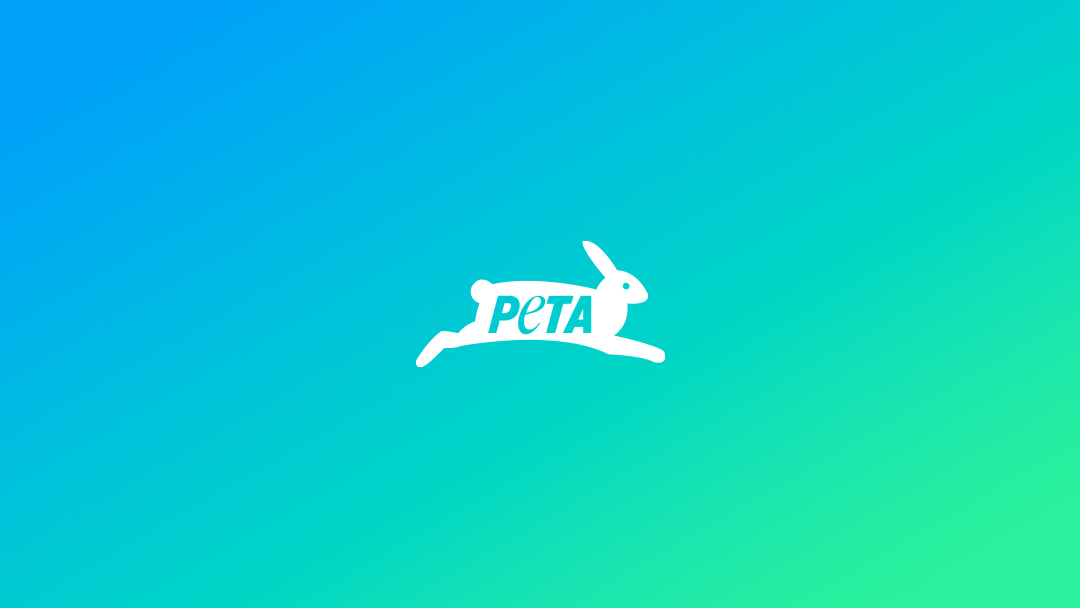
BREAKING: Australian Crocodile Skins Industry Exposed
Australia’s crocodile-farming industry supplies “luxury” fashion brands, but there’s nothing luxurious about what happens to the crocodiles slaughtered for their skins.
New eyewitness footage supplied to Kindness Project reveals that Australian crocodiles are subjected to horrendous cruelty, from the moment they hatch to the moment screwdrivers are shoved into their heads to scramble their brains – all for bags, belts, and boots.
The video documents the practices of four farms in the Northern Territory – Australia’s largest crocodile-skin producer – all with links to fashion brand Hermès.
In massive warehouses, thousands of crocodiles are confined to barren concrete pens, with little more room than the length of their body to move around in.
When they’re 2 or 3 years old – just a fraction of their natural life expectancy – they’re electrocuted and dragged from their pens while their bodies convulse. Workers then shoot them in the top of their heads with a captive-bolt gun and sever their spines with a knife. A screwdriver is then shoved into the incision wound, intended to scramble the crocodile’s brain. Some crocodiles were observed moving around for over a minute after this had been done to them.
At least three crocodiles must endure this suffering to make just one Hermès bag.
PETA and our international affiliates have exposed cruelty at reptile farms in Texas, Zimbabwe and Vietnam before, and the story is always the same: grim, close confinement and a violent death.
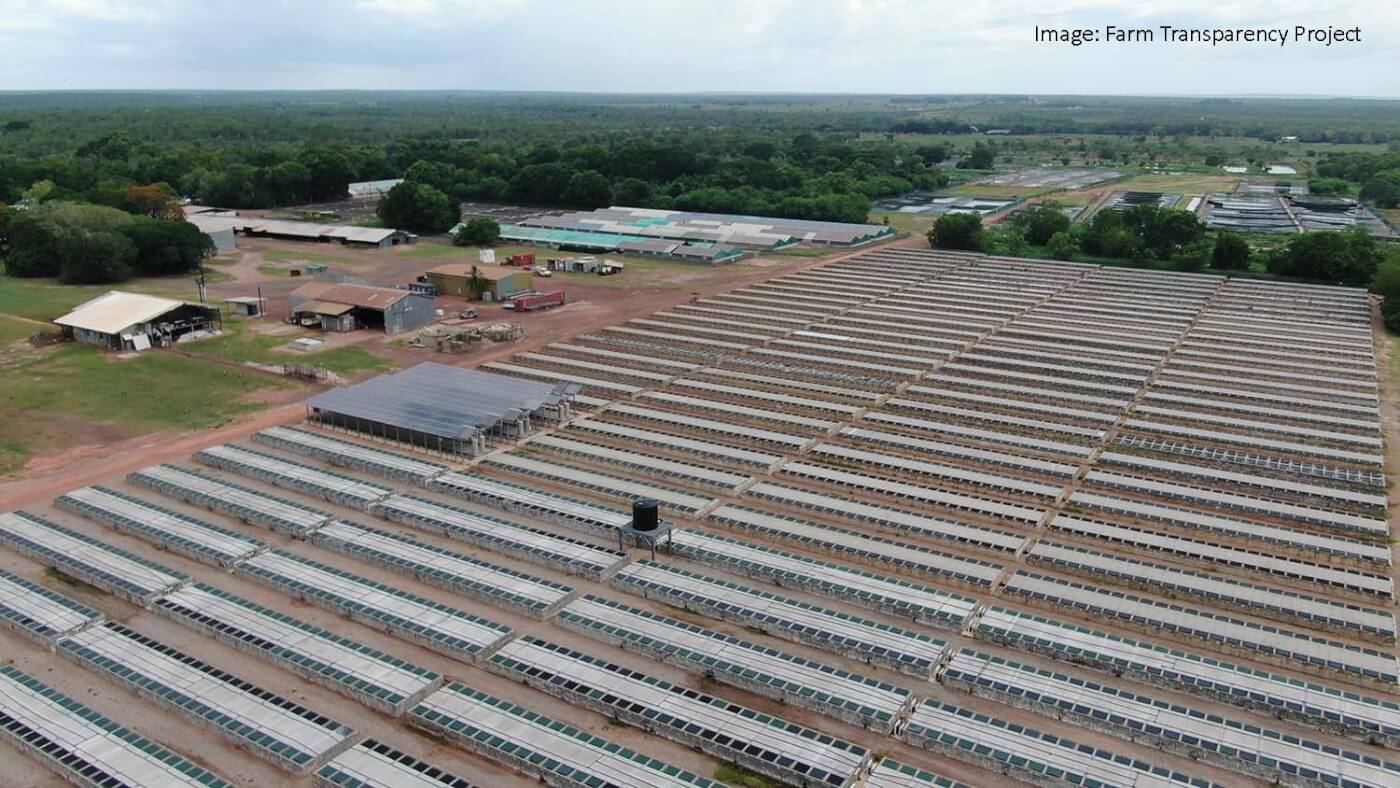
Crocodile-Farming Conservation Con
The crocodile-farming industry in Australia promotes itself as an industry invested in animal conservation, but this claim doesn’t hold up under scrutiny.
From 1945 to 1971, crocodile populations were decimated in the Northern Territory because they were hunted for their skins. Thankfully, crocodiles were protected in 1971, and their numbers have since stabilised.
The crocodile-farming industry likes to take the credit for this, claiming that “harvesting” (stealing) eggs from natural habitats and raising crocodiles on factory farms makes people in local communities more willing to live alongside the predators, because they’re generating money.
Crocodiles can be dangerous to those who enter their territory, but they’re also sentient beings who feel pain and fear. They’re protective, attentive parents and often amuse themselves by blowing bubbles. If left to their own devices, they can outlive most humans.
Catching and breeding native animals only to slaughter them for their skin is hardly conservation, and it certainly isn’t ethical. The rise in the population of saltwater crocodiles is a result of the hunting ban – it isn’t because people decided they could profit from farming and skinning them.
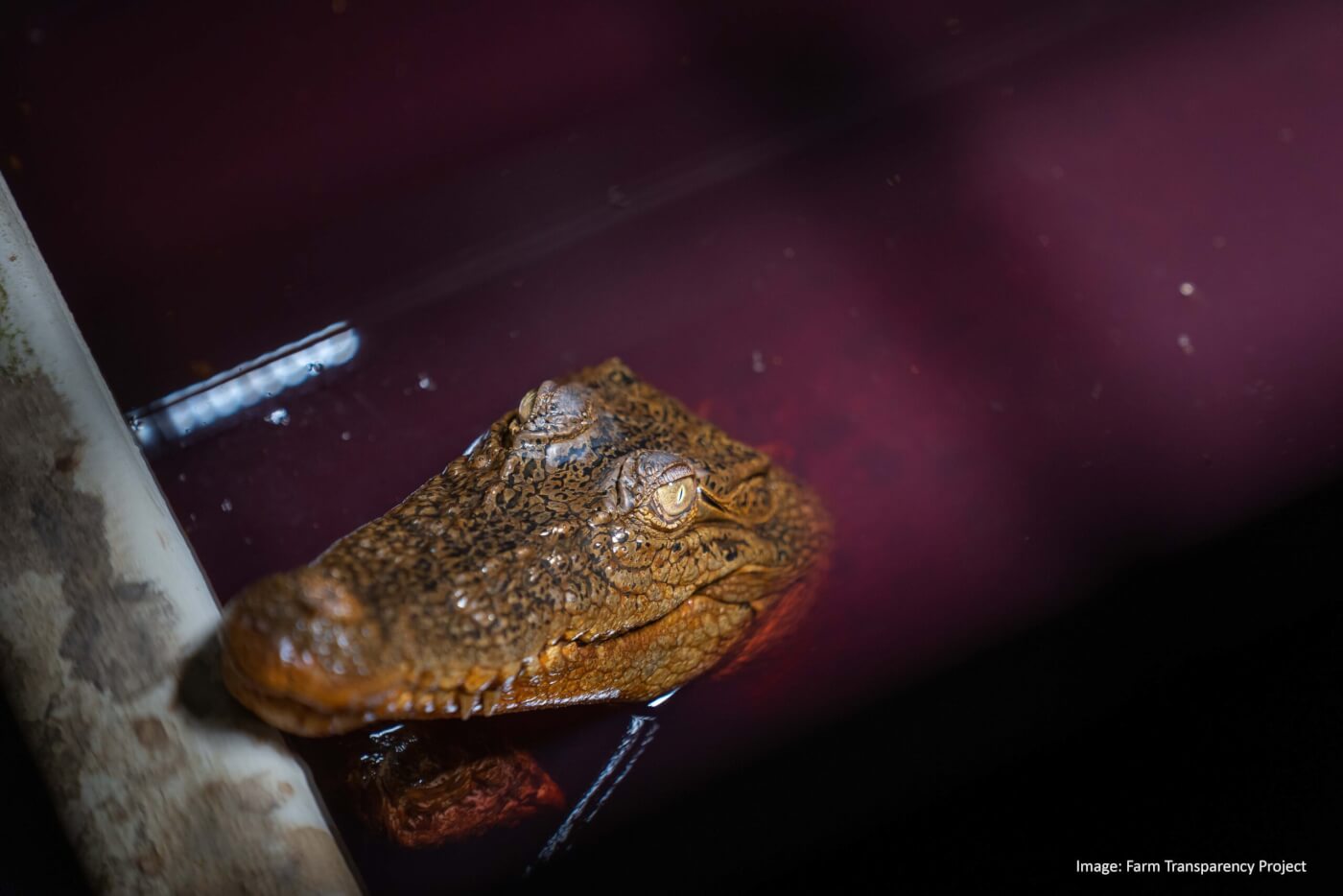
Exotic Skins and Zoonotic Diseases
Because crocodiles who are raised on farms for their skin are kept crowded together in highly unhygienic conditions – sometimes one on top of another in pits of putrid water – conservation experts warn that the next pandemic could come from the fashion industry.
Much like the “wet market” where the COVID-19 pandemic originated, crocodile farms create a breeding ground for many zoonotic pathogens, including salmonella, vibrio, Aeromonas spp, Pseudomonas spp, E coli, trichinella, and West Nile virus – all of which crocodilians have been found to carry and can pass on to humans.
Hermès Plans Australia’s Largest Crocodile Farm
Australia accounts for 60% of the global trade in saltwater crocodile skins, 90% of which are exported internationally. Hermès is planning to expand its operations here by building Australia’s biggest farm and imprisoning up to 50,000 animals at a time there.
This comes at a time when exotic skins are falling out of fashion. Chanel, Tommy Hilfiger, Calvin Klein, Mulberry, HUGO BOSS, and Victoria Beckham have all banned crocodile and other exotic skins from their collections.
Hermès should invest in humane, sustainable, and future-proof projects, not build new factory farms to torment animals and create a breeding ground for new pandemics. Join us in urging the brand to shed exotic skins now:
Help Animals in 2025: Renew Your PETA Membership!
